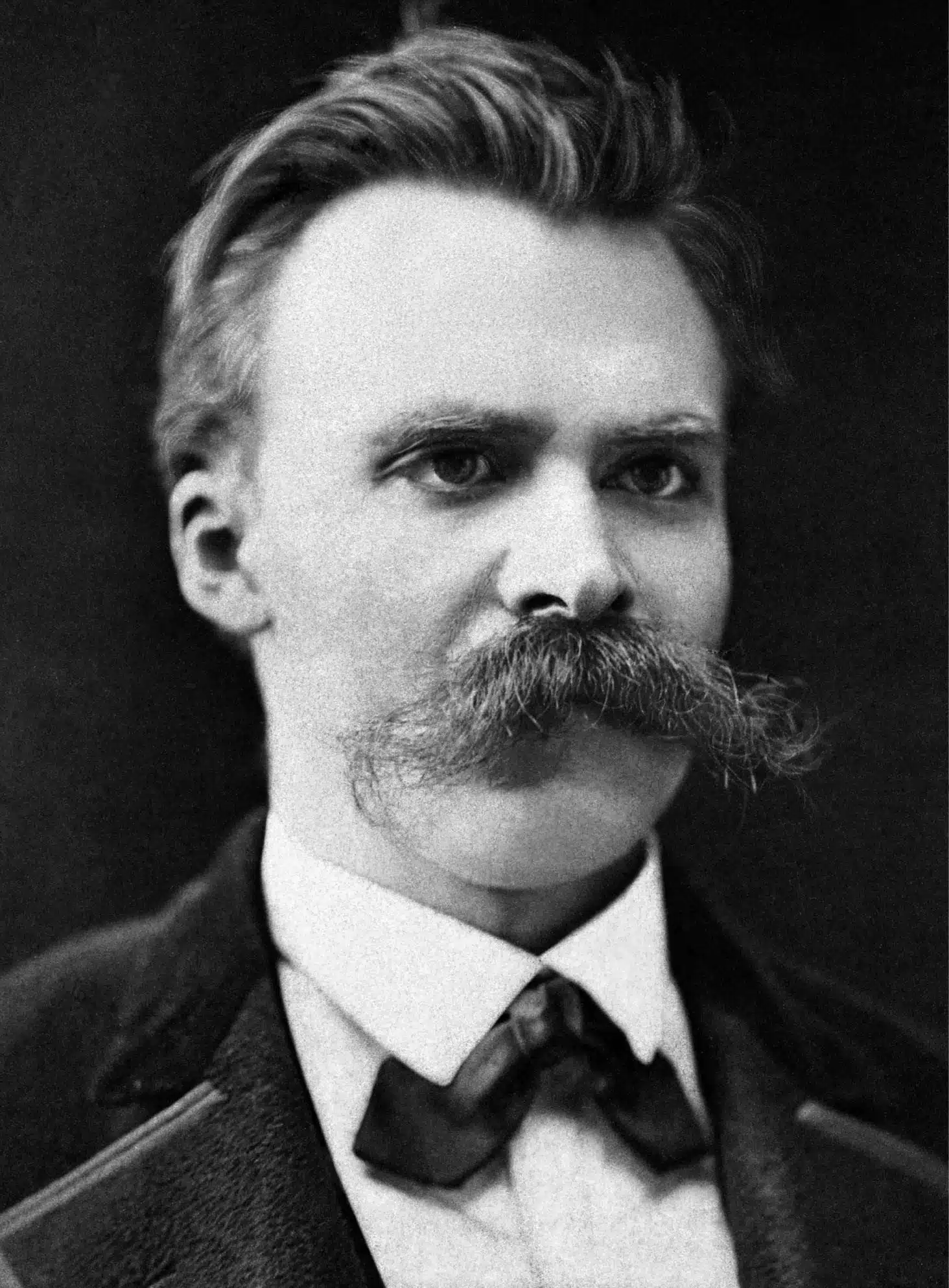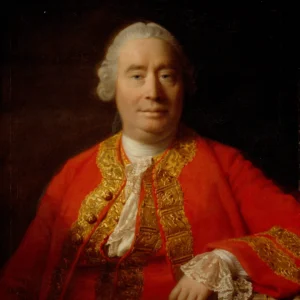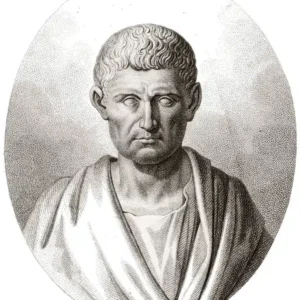Friedrich Nietzsche, a towering figure in the world of philosophy, is renowned for his provocative ideas that challenged the foundations of Western thought. His profound critiques of morality, religion, and culture, along with his concept of the “will to power,” have left an enduring legacy. Nietzsche’s work continues to spark debate and influence modern philosophy, psychology, and literature.
Early Life and Education
Childhood and Family Background
Friedrich Wilhelm Nietzsche was born on October 15, 1844, in Röcken, a small village in the Prussian province of Saxony. He was the first of three children born to Carl Ludwig Nietzsche, a Lutheran pastor, and Franziska Oehler Nietzsche. His father passed away in 1849, followed by his younger brother, Joseph, in 1850. These early tragedies had a profound impact on young Friedrich, shaping his introspective and contemplative nature.
Academic Pursuits
Nietzsche’s academic journey began at the prestigious Schulpforta boarding school, where he excelled in classical studies. His exceptional performance earned him a scholarship to the University of Bonn in 1864, where he initially pursued theology and philology. However, his interest soon shifted solely to philology, driven by his fascination with ancient Greek and Roman texts.
In 1865, Nietzsche transferred to the University of Leipzig, where he met the influential philosopher Arthur Schopenhauer through his works. Schopenhauer’s pessimistic philosophy deeply resonated with Nietzsche and significantly influenced his early thought.
Professional Life
Professorship at Basel
In 1869, at the remarkably young age of 24, Nietzsche was appointed as a professor of classical philology at the University of Basel in Switzerland. This position marked the beginning of a prolific academic career. During his tenure at Basel, Nietzsche formed a close friendship with the composer Richard Wagner, whose dramatic operas and aesthetic ideas initially captivated him.
Major Works and Ideas
Nietzsche’s scholarly work produced several groundbreaking books that continue to shape modern thought.
The Birth of Tragedy (1872)
In “The Birth of Tragedy,” Nietzsche explores the duality of the Apollonian and Dionysian elements in Greek tragedy. He posits that the Apollonian represents order, logic, and reason, while the Dionysian embodies chaos, passion, and instinct. Nietzsche argues that the tension between these two forces is essential for the creation of art. He also criticizes contemporary German culture for its overemphasis on rationality and neglect of the Dionysian element.
Thus Spoke Zarathustra (1883-1885)
“Thus Spoke Zarathustra” is one of Nietzsche’s most famous works, written in the form of a philosophical novel. Through the character of Zarathustra, Nietzsche presents his ideas on the Übermensch (Overman), eternal recurrence, and the death of God. The Übermensch is a figure who transcends conventional morality to create new values. The concept of eternal recurrence suggests that life repeats itself infinitely, challenging individuals to live authentically and embrace their existence.
Beyond Good and Evil (1886)
In “Beyond Good and Evil,” Nietzsche critiques traditional morality and introduces the concept of the “will to power.” He argues that conventional moral values are rooted in the interests of the weak and serve to suppress the strong. Nietzsche advocates for a reevaluation of values, encouraging individuals to rise above societal constraints and embrace their inherent power. He also explores the nature of truth, arguing that it is not an absolute but a construct influenced by perspective and power dynamics.
On the Genealogy of Morals (1887)
“On the Genealogy of Morals” delves into the historical development of moral values and examines the power dynamics behind them. Nietzsche traces the origins of concepts like guilt, bad conscience, and ascetic ideals, arguing that they arise from ressentiment—a form of reactive hatred or envy. He contends that moral values are not universal truths but are shaped by the interests of different social groups. Nietzsche’s genealogical method reveals the contingent and constructed nature of morality.
Philosophical Contributions
The Will to Power
Central to Nietzsche’s philosophy is the concept of the “will to power.” He posited that life is fundamentally driven by a force beyond mere survival or reproduction. The will to power is the intrinsic drive for individuals to assert and expand their influence and capabilities. Nietzsche believed that this concept explained a wide range of human behaviors and was a fundamental aspect of life itself.
Critique of Religion and Morality
Nietzsche’s assertion that “God is dead” is perhaps his most famous and provocative statement. He argued that the decline of traditional religious beliefs in the modern world had led to a moral vacuum. Nietzsche contended that humanity needed to move beyond conventional Christian morality and create new values that affirm life and human potential.
Influence on Existentialism and Postmodernism
Nietzsche’s ideas significantly influenced existentialist thinkers like Jean-Paul Sartre and Albert Camus, who grappled with themes of meaning, freedom, and individualism. His critiques of objective truths and grand narratives also paved the way for postmodernist thought, challenging the foundations of Western philosophy.
Personal Life and Challenges
Health Issues
Nietzsche’s life was marked by severe health problems, including chronic migraines, gastrointestinal issues, and near blindness. These ailments, exacerbated by the rigors of his academic duties, eventually forced him to resign from his professorship at Basel in 1879. Despite his health challenges, Nietzsche continued to write prolifically, driven by his relentless intellectual curiosity and passion.
Later Years and Decline
Nietzsche spent his later years in solitude, moving between various locations in Switzerland, Italy, and France. His mental and physical health continued to deteriorate, culminating in a severe mental breakdown in 1889. He spent the last decade of his life in a state of mental incapacitation, under the care of his sister, Elisabeth Förster-Nietzsche, who managed his estate and posthumous publications.
Legacy
Influence on Modern Thought
Nietzsche’s contributions to philosophy have had a profound and lasting impact on numerous fields, including psychology, literature, and existential philosophy. His concept of the Übermensch influenced existentialists like Jean-Paul Sartre and Albert Camus. Nietzsche’s work also resonated with psychologists such as Carl Jung and Sigmund Freud, who explored the depths of the human psyche.
Controversies and Misinterpretations
Nietzsche’s work has been subject to various interpretations, some of which have been controversial. His sister, Elisabeth, edited and published his works after his death, often in ways that aligned with her nationalist and anti-Semitic views. This led to misinterpretations and associations of Nietzsche’s philosophy with ideologies he did not endorse.
Conclusion
Friedrich Nietzsche’s contributions to philosophy are both profound and enduring. His bold critiques of morality and culture, alongside his revolutionary ideas about the will to power, continue to inspire and challenge thinkers to this day. While his life was marked by personal struggle and controversy, Nietzsche’s legacy as the philosopher of will and power remains unassailable. His thoughts on the will to power, the death of God, and the creation of new values have cemented his place as one of the most influential and provocative philosophers in history.


